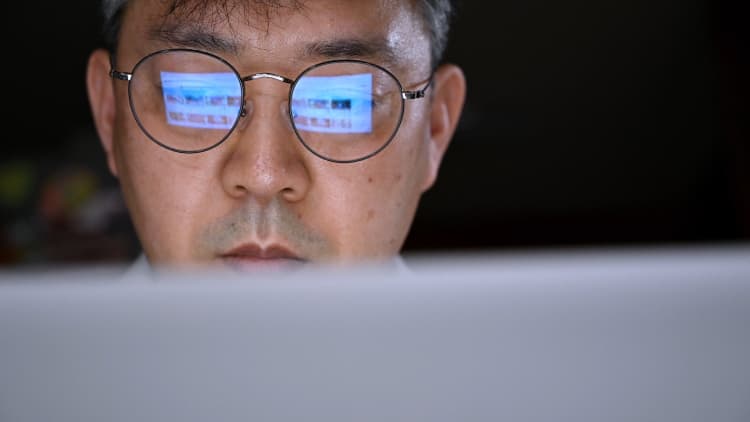Users who've been banned from Twitter for violating its rules, a group that includes former President Donald Trump, will not have the chance to return to the platform for at least another few weeks, the company's new owner, Elon Musk, said in a tweet Wednesday.
Musk said the delay will give Twitter time to set up a process around determining when and how banned users can return. Musk has said he doesn't believe in permanent bans and called it a "mistake" to permanently suspend Trump in the wake of the Jan. 6, 2021, insurrection at the U.S. Capitol. Twitter had said at the time it made the decision "due to the risk of further incitement of violence."
Musk floated the idea of a content moderation council shortly after closing his $44 billion deal to buy the company — which came after a legal battle where he tried to get out of it. He said late last month Twitter would not make any decisions on reinstating accounts until the council convenes.
On Wednesday, Musk gave more details about the planned council, saying on Twitter it "will include representatives with widely divergent views, which will certainly include the civil rights community and groups who face hate-fueled violence."
Musk also said he'd talked to civil society leaders from organizations including the Anti-Defamation League, NAACP, Free Press and Color of Change, "about how Twitter will continue to combat hate & harassment & enforce its election integrity policies." Twitter will undergo its first major U.S. election under its new ownership on Nov. 8.
Free Press co-CEO Jessica J. Gonzalez said in a statement that the conversation with Musk was "productive." Gonzalez said Musk promised not to reinstate any accounts that violated Twitter's trust and safety rules before Tuesday's midterm elections and that the process of re-platforming accounts would be transparent.
Musk also agreed to maintain Twitter's election integrity measures and told the group that staff charged with those duties would have access to the necessary tools by the end of the week, according to Gonzalez. Musk also committed to consulting with civil and human rights experts who have been targeted online while developing new content moderation standards, Gonzalez said.
NAACP President Derrick Johnson said in a statement that the group agreed to the meeting "to express our grave concerns with the dangerous, life-threatening hate and conspiracies that have proliferated on Twitter under his watch."
"Nazi memes, racial slurs, and extreme far-right propaganda do not belong in the 'town square' of any democracy or online platform," Johnson added. "Taking the necessary actions is not rocket science, but failing to do so will put human lives at risk and further unravel our democracy."
Johnson stressed that the immediate need is for Twitter's election integrity policies to remain in full force at least through the certification of the midterm elections.
Facebook owner Meta already has a similar body that helps adjudicate and advise on the most difficult content moderation questions, including how the platform should approach Trump's ban.
Musk tried to reassure advertisers on Thursday that Twitter won't turn into a "free-for-all-hellscape, where anything can be said with no consequences!" The statement pushed back on fears some progressives have expressed that Twitter would become overrun by hate speech and misinformation under Musk, since he had previously said he would pull back on content moderation.
Advertising giant Interpublic Group recommended on Tuesday that all clients of its IPG Media Brands agencies suspend all paid advertising on Twitter for at least a week to wait for clarity on the company's plans for trust and safety.
There have already been notable changes since Musk took over. For example, after Mark Finchem, the Republican candidate for secretary of state in Arizona, asked Musk for help in lifting restrictions on his account, full functionality appeared to be restored an hour later. The restriction meant his timeline was still visible to the public, but he couldn't post new tweets, or like or respond to others' tweets.
Finchem had called upon Musk for help in a tweet, and Musk said in a reply on Twitter that he was "looking into" the matter. Finchem has been a prominent 2020 election denier and an Arizona state legislator. The politician has been roundly criticized for sharing anti-Semitic tropes and memes on Twitter.
-CNBC's Lora Kolodny contributed to this report.
WATCH: The messy business of content moderation on Facebook, Twitter, YouTube



